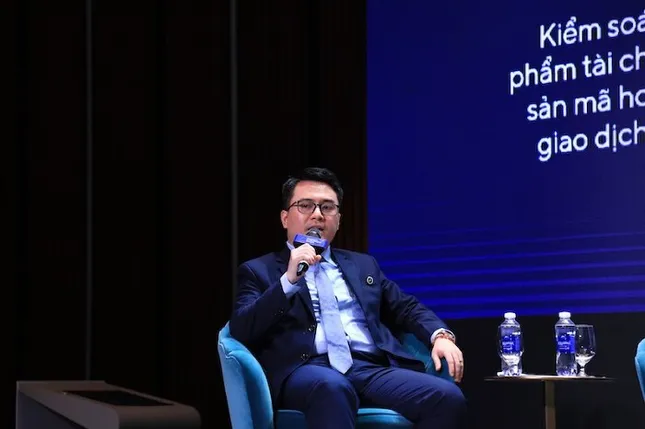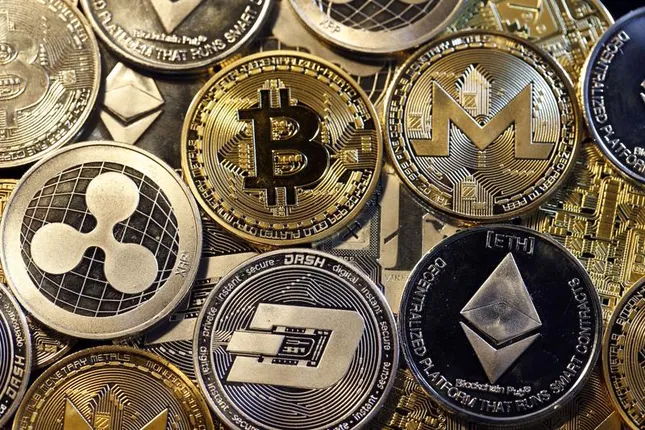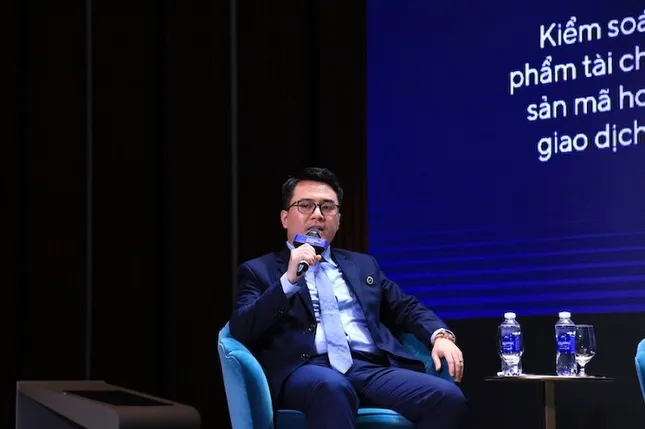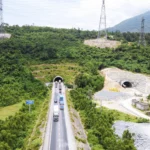At the Vietnam Investment Forum 2025 hosted by Vietnambiz on the afternoon of June 3rd, Mr. To Tran Hoa, Deputy Head of the Securities Market Development Division of the State Securities Commission of Vietnam, shared that according to estimates by various organizations, there are approximately 9-21 million digital asset investment accounts in Vietnam.
“While these figures indicate a significant level of interest in the market, they may not be entirely accurate,” said Mr. Hoa. He added that the State Securities Commission is currently working on a draft resolution for the government regarding the regulation of the digital asset market.

Mr. To Tran Hoa, Deputy Head of the Securities Market Development Division, State Securities Commission of Vietnam
The Vietnamese government is also in the process of presenting the Digital Technology Industry Law to the National Assembly, which will provide a legal framework for digital and encrypted assets. “Encrypted assets are a part of the digital asset market, and we are treating them as a new type of asset. Until there is a law in place, all activities in this space are considered risky and operate in a legal gray area,” Mr. Hoa explained. He further mentioned that the Commission has received numerous requests to verify digital asset transactions, and almost 90% of these cases involve fraudulent activities.
The legalization of the digital asset market is a step forward by the government to protect citizens from scams and create new investment and fundraising channels for businesses, while also providing a new source of tax revenue. Recognizing this market will foster innovation and strengthen the digital economy.
Mr. Phan Vu Tuan, Head of Phan Law Vietnam Law Office, emphasized the importance of including digital and encrypted assets in the Digital Technology Industry Law. “We believe that encrypted assets should be recognized as a form of property rights. In the past, owners of these assets were not protected by the law, and there were concerns about inheritance and whether theft of these assets, such as bitcoin, would be considered a crime,” said Mr. Tuan.

According to experts, legal recognition of encrypted assets could unlock a significant source of wealth. Illustrative image.
Mr. Mai Huy Tuan, General Director of SSI Digital Technology Joint Stock Company, shared his experience of operating in the digital asset market since 2017 and the constant legal risks they have faced. He expressed his hope for a legal framework that would allow the establishment of exchanges for digital assets.
“What we are most looking forward to from a legal perspective is the recognition of digital assets as a legitimate form of wealth. Vietnamese individuals hold a significant amount of digital assets. If legalized, these assets could become an enormous source of capital,” said Mr. Tuan. He went on to explain that many Vietnamese individuals mined large quantities of bitcoin in the early days, and he personally knows individuals who own as many as 20,000 bitcoins. With the current value of each bitcoin being approximately 3 billion VND, these holdings are incredibly valuable.
Mr. Tuan also mentioned the case of Mt. Gox, a now-defunct Japanese exchange that was once the largest in the world. If Mt. Gox were to refund its users, many Vietnamese individuals would stand to gain tens of thousands of billions of VND. He has personally witnessed a friend’s digital wallet containing over 1,000 bitcoins. However, due to the lack of legal recognition, many individuals are reluctant to disclose their holdings.
Mr. Phan Duc Trung, Chairman of the Vietnam Blockchain Association (VBA), also expressed his hope for the Digital Technology Industry Law to provide a legal framework for the digital asset market. He highlighted the growing interest and demand from Vietnamese individuals, who do not want to miss out on the opportunities presented by this new asset class. Mr. Trung advocated for the early enactment of the law to ensure the recognition of digital assets, align with global trends, and create a fluid source of capital for the stock market and other investments.
“The Private Sector: Leading the Charge Towards a Low-Carbon, Green Growth Economy”
Although the nation’s economic growth model remains carbon-intensive, Vietnam’s private sector has begun to seize green growth opportunities. The private sector will also be pivotal in Vietnam’s efforts to reduce emissions and transition to a low-carbon economy.
The Mountain-Piercing Tunnel: A Robotics Revolution in Vietnam’s Infrastructure
The Deo Van Guan Tunnel is set to undergo a significant expansion with a new tunnel boring project. With a length of 555 meters and a width of 10.5 meters, this ambitious undertaking is slated for completion in 2025. To meet this tight deadline, a dedicated team of hundreds of workers, advanced tunnel-boring machines, and state-of-the-art robotics are working in unison.





















